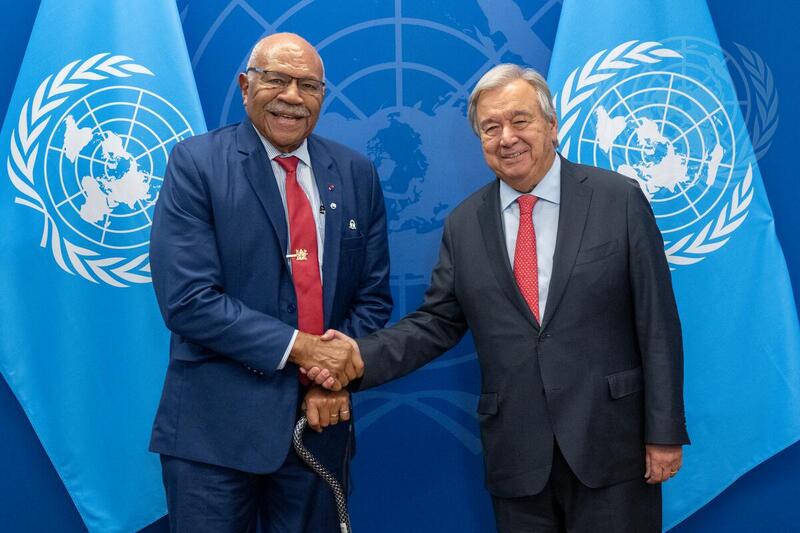Fiji’s Prime Minister Sitiveni Rabuka says the island nation places her trust in multilateralism because “we believe in the values of peace, justice, respect, human rights, tolerance, and solidarity”.
Mr Rabuka made the comment during his meeting yesterday with United Nations secretary-general Antonio Guterres on the margins of the 78th UN General Assembly.
At the meeting, Mr Rabuka expressed gratitude for the opportunity to engage, highlighting the pressing global challenges testing both individual and collective limits; and emphasised the far-reaching impact of rising inflation, climate change, energy crises, and geopolitical competition.
He said those issues were pushing the boundaries of international cooperation and threatening the world’s security and governance systems.
However, he said Fiji was committed to meet its international obligations, including those outlined in the Sustainable Development Agenda.
“This year has been pivotal for Fiji and we are encouraged by the UN’s unwavering support in addressing critical global challenges, such as COVID-19 and the climate emergency,” Mr Rabuka was quoted as saying in a government statement.
He also stressed the significance of dialogue, solidarity, and trust within the Pacific Way, which he said continued to foster understanding within and beyond the region.
The PM also stressed that peace and security remained Fiji’s top priorities, with specific focus on geopolitical developments, maritime security, sustainable socioeconomic development and strengthened partnerships.
He encouraged continued collaboration with the UN to advance a localised response to the global 2030 Agenda for Sustainable Development, and tailored to each country’s unique national priorities.
“The 2050 Strategy for the Blue Pacific outlines our region’s development priorities for the next three decades, and we seek an elevated partnership with the UN to support these priorities,” Mr Rabuka said, and acknowledged the complexities of security in the Pacific, including threats from transnational crime, climate change, terrorism, natural disasters, political instability, and internal conflicts.
He also noted the interconnectedness between security, stability, sustainable development, and economic growth.


